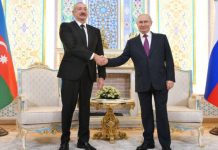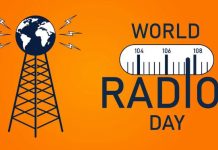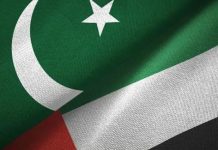Israel carried out its first airstrike on the Gaza Strip in months early on Tuesday, in response to a rocket allegedly fired from the Palestinian enclave after a weekend of violence around a Jerusalem holy site.
The army also said its special forces had made five arrests overnight in the occupied West Bank, which has seen a string of deadly Israeli raids since an uptick in attacks and demonstrations four weeks ago.
Tensions have focused on the highly contested Al Aqsa mosque compound, known to Jews as the Temple Mount, in Jerusalem’s Israeli-annexed Old City.
Palestinian worshippers gathering there for Ramazan prayers have been outraged by visits by religious Jews under heavy Israeli police protection — as well as restrictions on their own access.
Jews are allowed to visit the site at certain times but prohibited from praying there.
The violence, coinciding with the Jewish Passover festival as well as the Muslim holy month, has sparked fears of a repeat of last year’s events, when similar circumstances sparked an 11-day war that levelled parts of Gaza.
On Monday, warning sirens sounded after a rocket was purportedly fired into southern Israel from the blockaded enclave, controlled by Hamas, in the first such incident since early January.
The Israeli military said that the rocket had been intercepted by the Iron Dome air defence system.
Hours later, the Israeli air force said it had hit a Hamas weapons factory in retaliation.
Hamas claimed to have used its “anti-aircraft defences” to counter the raid, which caused no casualties, according to witnesses and security sources in Gaza.
No faction in the crowded enclave of 2.3 million inhabitants immediately claimed responsibility for the rocket.
But it comes after weeks of mounting violence, with a total of 23 Palestinians and Arab-Israelis killed, including alleged assailants who are said to have targeted Israelis in four deadly attacks.
Those attacks claimed 14 lives, mostly civilians, according to an AFP tally.
The rocket fire also followed a weekend of Israeli-Palestinian violence in and around the Al Aqsa Mosque compound that wounded more than 170 people, mostly Palestinian demonstrators.
Diplomatic sources said the United Nations Security Council was to meet on Tuesday to discuss the spike in violence.
Israeli police said they had refused to authorise a march Jewish nationalists had planned around the walls of the Old City.
A similar parade last year, following a similar wave of violence, was interrupted by rocket fire from Gaza which in turn triggered an 11-day war.
That conflict killed at least 260 Palestinians including many fighters, and 14 people on the Israeli side including a soldier.
Incidents at the Al Aqsa mosque compound, the holiest site in Judaism and the third-holiest in Islam, have triggered repeated rounds of violence over the past century.
Hamas has vowed to defend Al Aqsa’s status as “a pure Islamic site”.
But analysts have said in recent weeks that the movement does not want a war at present, partly because its military capacities were degraded by the last one.
They say Hamas is also wary that a new conflict could prompt Israel to cancel thousands of work permits issued in recent months to residents of impoverished Gaza, where unemployment is near 50 per cent.
But Islamic Jihad, another Palestinian faction which Israel says has thousands of fighters and rockets in the enclave, said on Monday that “the enemy’s threats to cut off aid to Gaza will not force us into silence over what is happening in Jerusalem”.
US State Department spokesperson Ned Price said on Monday that the United States was “deeply concerned” about the tensions and that senior US officials had been in touch by telephone with their counterparts from Israel, the Palestinian Authority and Arab governments.
“We have urged all sides to preserve the historic status quo” at the Al Aqsa compound and avoid “provocative” steps, he said.

















